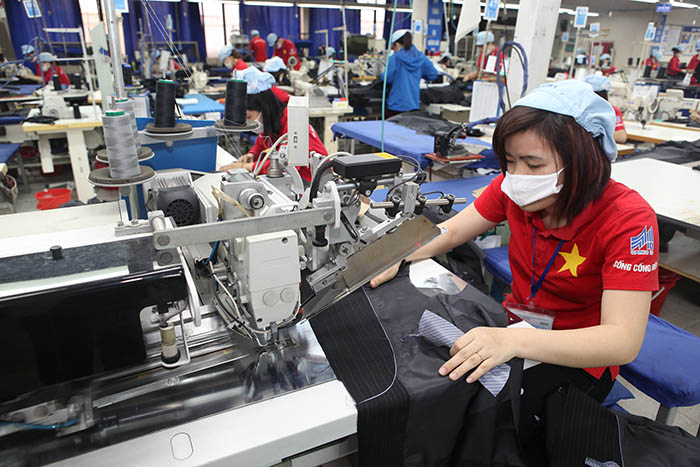Early warning system for trade remedies ensures sustainable exports
As of July 2021, Vietnam’s export items have been subject to 207 trade probes from abroad, 77% of which, or 160, were conducted since 2011.
While Vietnam’s large network of 17 free trade agreements (FTAs) has no doubt served as a key driving force for export growth, its early warning system for trade remedies has ensured sustainable trade development by helping businesses better respond to possible trade probes.
| Production at Garment 10 Company. Photo: Thanh Hai |
The move is particularly important as local traders are now facing higher risks from safeguard measures given the growing export turnover.
As of July 2021, Vietnam’s export items were subject to 207 trade probes from abroad, 77% of which, or 160, were conducted since 2011.
Chu Thang Trung, Deputy Director-General of the Ministry of Industry and Trade’s (MoIT) Trade Remedies Authority, noted such actions are causing negative impacts on Vietnam’s trade competitiveness and could ultimately lead to loss of export market share.
“To better help businesses deal with potential trade probes, the MoIT has put in place an early warning system, which follows the export situation of goods or products being imposed with safeguard measures, or such measures have been put on products from a third country and Vietnam is likely to be the next in line,” Trung added.
According to Trung, risk factors may include rapid growth in export turnover, significant market share of Vietnamese products, or competition from Vietnamese goods injuring companies in the export market.
Trung noted the Trade Remedies Authority is scheduled to update information on the early warning system on a quarterly basis for government agencies, business associations, and traders to prepare before an actual trade probe would take place.
“Based on the information provided from the system, the MoIT and other authorities would cooperate with trade partners to verify the information and prevent acts of foreign companies forging Vietnamese origin to illegally evade trade remedies,” he added.
Since the MoIT first announced the launch of the early warning system in July 2019, there were seven products in the list that were later subject to trade probe, including wood plank, mattress, tire, honey, stainless steel, copper pipe, and ceramic tile.
Getting information beforehand helped related companies to cooperate with investigators and minimize negative impacts, said Deputy Minister of Industry and Trade Tran Quoc Khanh.
For example, in the case of the US proceeding with the anti-dumping probe on auto tires, a number of major local companies, accounting for 95.5% of total Vietnam’s export turnover of tires to the US, were exempted from such measure.
In the case of copper pipe, the anti-dumping duty from the US against Vietnamese firms was 8.35%, much lower compared to the rate proposed by US companies at 110%.
As trade remedies have been allowed by the World Trade Organization (WTO) for its members to protect domestic industries, experts suggested enterprises plan for possible safeguard measures in advance, as the important issue would be how to respond to such trade probes.
“Local firms may have to adjust their operations to avoid risks from trade, and accept them as part of their businesses,” Director of the WTO Center and Integration under the Vietnam Chamber of Commerce and Industry (VCCI) Nguyen Thi Thu Trang said.












